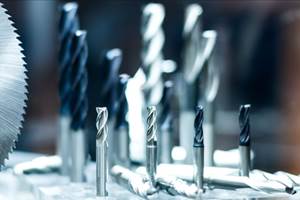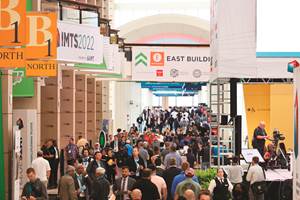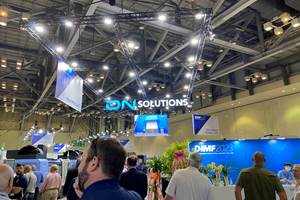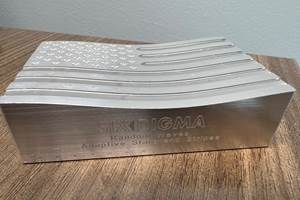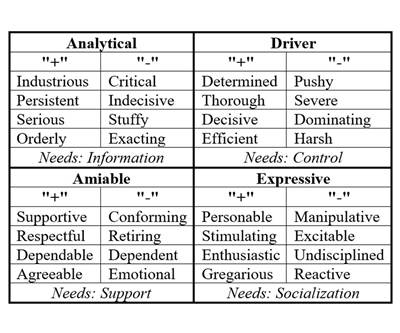The Manufacturing Process Is All About the People Who Make It Work
This month, we say goodbye to long-time Modern Machine Shop columnist Wayne Chaneski, who is retiring. Here is some of what he has helped me to see.
Share
We think of the manufacturing “process” as the system for making the end product. That’s not quite right.
Instead, the process is the system by which people make that end product. The significance of that distinction has come into focus for me as I’ve read back through the writings of Wayne Chaneski, the Modern Machine Shop columnist who has written our “Competing Ideas” column for 25 years. Wayne retires his regular column after this month’s entry.
With no people, there would be no process. Rather, there would be just an automated machine or line cranking out parts. Add people, and you add the most powerful and most complex element any manufacturing system will see. A well-designed process is valuable because of the way it can set those people free to do their very best work.
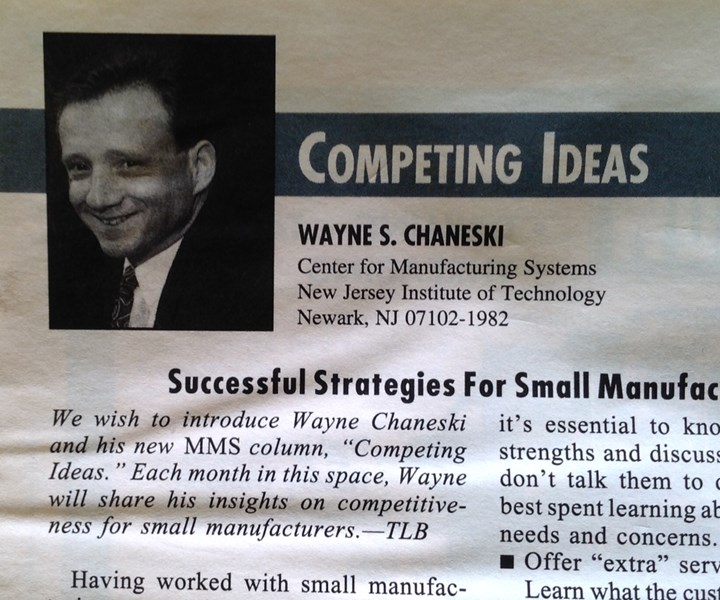
Wayne Chaneski’s column “Competing Ideas” has been part of Modern Machine Shop magazine since it first appeared in the July 1995 issue, as seen here.
Wayne recently shared with me a list of his favorite column installments. I re-read these pieces. You can read them, too — we’ve made this collection available as a free download. As I sat with his writing on various aspects of lean manufacturing and managing and encouraging personnel, I was struck by several ideas:
1. Confusion equals inefficiency.
We don’t accept inconsistency in manufactured parts because we recognize its cost. Why don’t we recognize the same thing about systems guiding people? Where a poorly designed process permits ambiguity about what the next step should be, this interlude of doubt also amounts to a cost being paid.
2. Culture sends signals.
A manager does not just communicate in what she directs. A manager also communicates in what she permits — the state of affairs left in place without acknowledging or addressing its shortcomings. That state of affairs is, or contributes to, culture; and culture sends messages even when no one else is speaking.
3. People forget — accept it.
A process that requires people not to be forgetful — to keep steps and data straight in their minds as they go — drains their energy by forcing them to work against their nature. Processes should be designed to be simple, with reminders built in and with needed information readily available.
4. Even lean needs to be lean.
A process stops serving people (not to mention the product) when it goes too far with serving a principle instead. Too formal a commitment to lean manufacturing poses this danger. Too formal a commitment to time-saving or inventory reduction poses the same danger. A little extra, a little margin and a little time provide the buffer that makes it possible to accommodate both unexpected developments and human vagaries with grace instead of stress.
5. People are individuals.
The very thing we value in people is the thing that most frequently confounds us: individual uniqueness. How do we work with, and work out, our differences? Here is a simple tip I took from one of Wayne’s columns: Always assume the other person means what he says. That is, don’t look for hidden agendas or unspoken meanings. What if all the meaning you need is right there in the words the other person is saying? Real communication begins with this trust. Thank you, Wayne.
Related Content
Addressing the Manufacturing Labor Shortage Needs to Start Here
Student-run businesses focused on technical training for the trades are taking root across the U.S. Can we — should we — leverage their regional successes into a nationwide platform?
Read MoreIMTS Takeaways From the Modern Machine Shop Editorial Team
The first in-person IMTS in four years left the MMS editorial staff with a lot to digest. Here are a few of our takeaways from the show floor.
Read MoreDN Solutions Responds to Labor Shortages, Reshoring, the Automotive Industry and More
At its first in-person DIMF since 2019, DN Solutions showcased a range of new technologies, from automation to machine tools to software. President WJ Kim explains how these products are responses to changes within the company and the manufacturing industry as a whole.
Read MoreBuilding Machines and Apprenticeships In-House: 5-Axis Live
Universal machines were the main draw of Grob’s 5-Axis Live — though the company’s apprenticeship and support proved equally impressive.
Read MoreRead Next
Change and Behavioral Styles
Learning the characteristics of each behavioral style and how people are likely to react will help you better implement change in your organization.
Read More

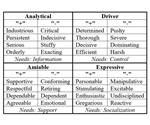














.jpg;maxWidth=300;quality=90)
